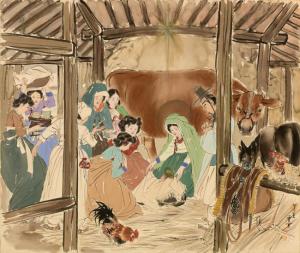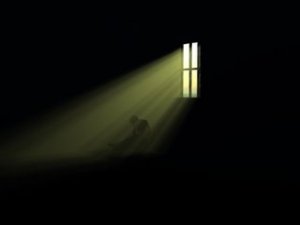This meditation by Alfred Delp on grace before his trial evokes in me the maxim “the truth shall set you free.” And the truth that liberates a person is not the initiative of the person, but is a response to the grace of God. As such, the self-constituting act of freedom is also an act of healing love.
The Law of Grace
[Tegel Prison, Berlin, Epiphany 1945]
However the wilderness is neither the beginning nor the end. In his perilous climb to the heights of freedom man is not entirely dependent on his own resources. The more he has to overcome, the greater the distance he has to travel, to transcend himself and find his true self, the less he can depend on his own unaided power. Both as a race and as individuals we have experienced and discovered how miserably inadequate our own feeble efforts are. Please God it may be a long time before we again overrate our personal powers in so devastating a fashion.
 Freedom is born in the hour of contact. And it is not as if God simply stood there, waiting for the weary traveller to arrive. Both God and man are travelling towards one another. God shows in hundreds of ways his willingness to meet man more than halfway—to put out his hand when man tends to stumble. And this is not the full extent of His divine aid—this is merely the preliminary. The summit is reached when man hears His voice; then he can no longer doubt that his destiny is to rise above himself to his fulfillment.
Freedom is born in the hour of contact. And it is not as if God simply stood there, waiting for the weary traveller to arrive. Both God and man are travelling towards one another. God shows in hundreds of ways his willingness to meet man more than halfway—to put out his hand when man tends to stumble. And this is not the full extent of His divine aid—this is merely the preliminary. The summit is reached when man hears His voice; then he can no longer doubt that his destiny is to rise above himself to his fulfillment.
Today’s feast uses three symbols for the divine attraction that draws man with gifts of grace—the star, the sacred river and the water changed into wine. But they are only symbols, not the truth itself. For the star signifies the child, the river signifies the Lord and the divine remission and forgiveness of sin, and the wedding feast signifies the coming of the Spirit for our salvation. Humanity is made to see that it is not only under the law that demands grace but it is also under the law of genuine and effective grace. Precisely where he most needs help man finds it because God has placed himself on an equal footing with us. We are not alone—we can face anything that befalls us. And more than that, we are capable of living effectively when everything in our world seems to be against us. Remember St. Paul said: “My grace is sufficient”—and it was sufficient to such an extent that to this day the world admits it. Another great man said: “God alone suffices—and he did suffice for a life whose fruits the world is still reaping.
At the present time we are still wandering in the wilderness. The cry for help still arises from our hearts. It is true as far as we are all concerned and it is true for me personally. In this situation the wilderness has lost its peaceful appeal and assumed its more threatening aspect hinting at unknown dangers. This is no figure of speech but actual fact. We nine are acutely aware of the great community, the world of men arranged against us, and we are the “lost one” who tomorrow have to start an unknown journey to meet our fate.
But the wilderness will not lead us to final doom but to a great freedom. The wilderness exists to be overcome. And I know that I am not alone. The law of truth and love and prayer still holds good. I must let the healing current run its course so that the waters of bitterness will be turned into the wine of divine blessing; prayer and praise.
[excerpt from The Prison Memoirs of Father Delp]

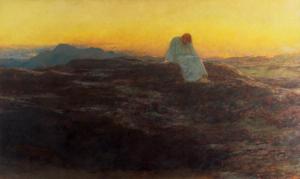
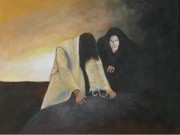


![Star of Bethlehem [Edward Burne-Jones, 1890] 1486010_615991251807654_1935328296_o](https://pedrokolbe.files.wordpress.com/2014/01/1486010_615991251807654_1935328296_o.jpg?w=300&h=200)
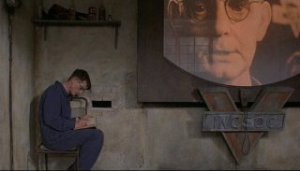
![Adoration of the Magi [Jan Brueghel 1598-1600] Adoration-of-the-Magi](https://pedrokolbe.files.wordpress.com/2014/01/adoration-of-the-magi.jpg?w=300&h=223)





![Le Massacre des Innocents [Nicolas Poussin, 1628-1629] 1537960_1449059758649118_1490099390_o](https://pedrokolbe.files.wordpress.com/2013/12/1537960_1449059758649118_1490099390_o.jpg?w=300&h=224)

![The Nativity [Edward Burne-Jones, 1888]](https://pedrokolbe.files.wordpress.com/2013/12/800px-edward_burne-jones_-_nativity_-_img_0732-1.jpg?w=300&h=190)
![The Stoning of Saint Stephen [Lorenzo Lotto, 1513-16] Stephen](https://pedrokolbe.files.wordpress.com/2013/12/stephen.jpg?w=300&h=157)
![Mother and Child [Corregio 1528] Correggio_Nativity](https://pedrokolbe.files.wordpress.com/2013/12/correggio_nativity.jpg?w=218&h=300)
![The Nativity [Federico Barocci 1597]](https://pedrokolbe.files.wordpress.com/2013/12/natividade-_federico_barocci_1597.jpg?w=221&h=300)
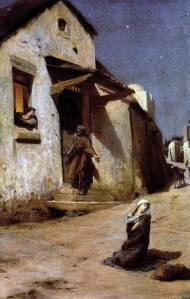
![The-Adoration-of-the-Magi-in-the-Snow [Pieter-Bruegel-the-Younger 1636] Pieter-Bruegel-the-Younger-The-Adoration-of-the-Magi-in-the-Snow](https://pedrokolbe.files.wordpress.com/2013/12/pieter-bruegel-the-younger-the-adoration-of-the-magi-in-the-snow.jpg?w=300&h=191)
